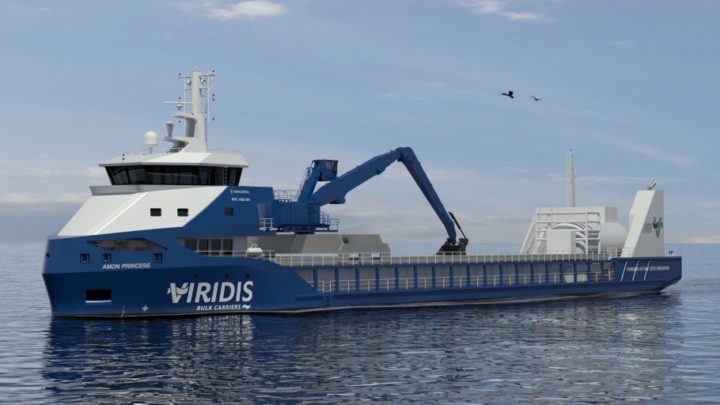
“We are delighted with yet another milestone for our ammonia powered short sea bulk vessel,” said André Risholm, board member of Viridis Bulk Carriers. “During the AiP process we have had a good constructive process and excellent co-operation with DNV. This is a clear testament to the hard work completed and is important for moving closer to the newbuilding phase. Considering the heightened emission reduction targets set by the EU and IMO, our Viridis vessels will fully adhere to these standards. This will empower charterers to benefit from exceptional greenhouse gas reductions throughout their logistical value chain.”
“We are extremely proud to announce the successful grant of the Approval in Principle (AiP) for Viridis Bulk Carriers’ groundbreaking project,” Tuva Flagstad-Andersen, regional manager of North Europe at DNV. “DNV introduced the Gas Fuelled Ammonia notation to enable the industry to foster innovation and drive sustainable solutions in line with the most advanced industry standards. This is essential to wider adoption, because building trust is vital as we look to develop the next generation of fuels. With these projects, we demonstrate how by working in collaboration, we can shape the future of shipping and advance towards a decarbonised and sustainable tomorrow.”
